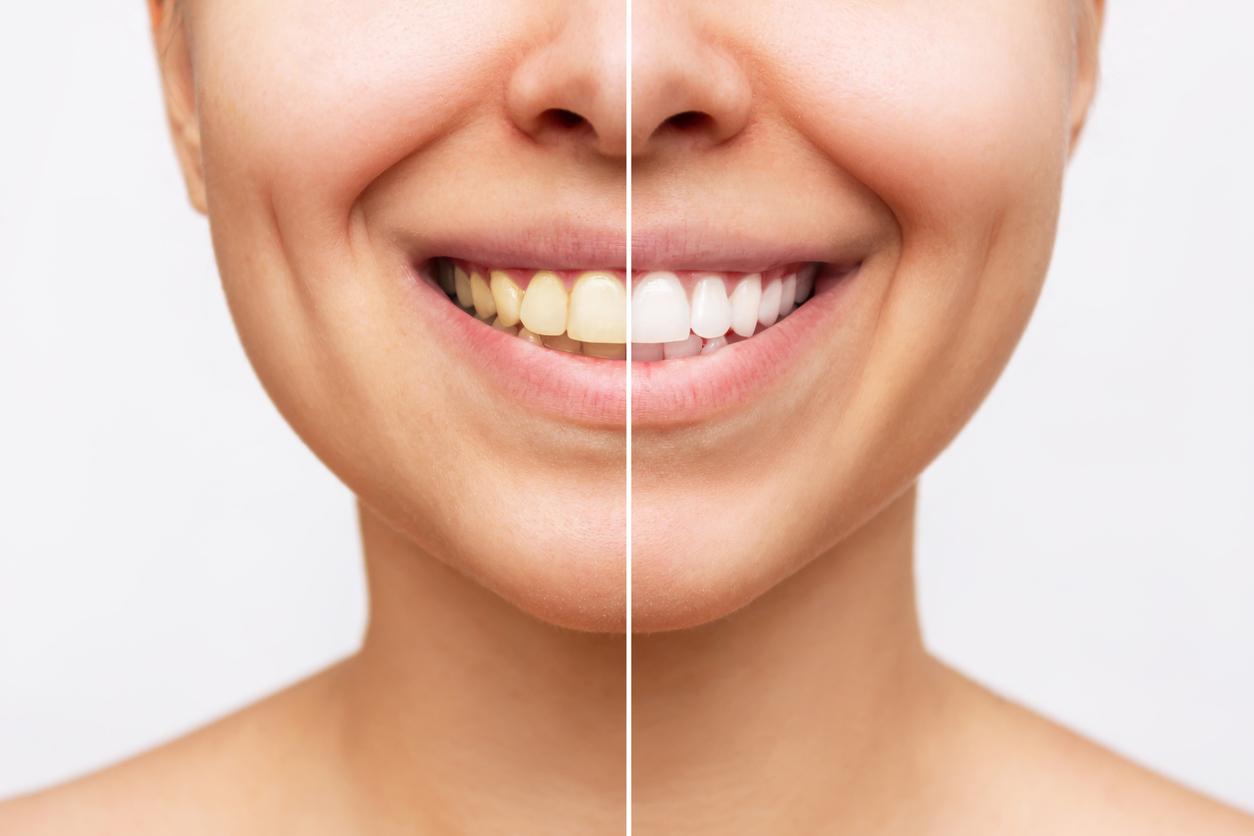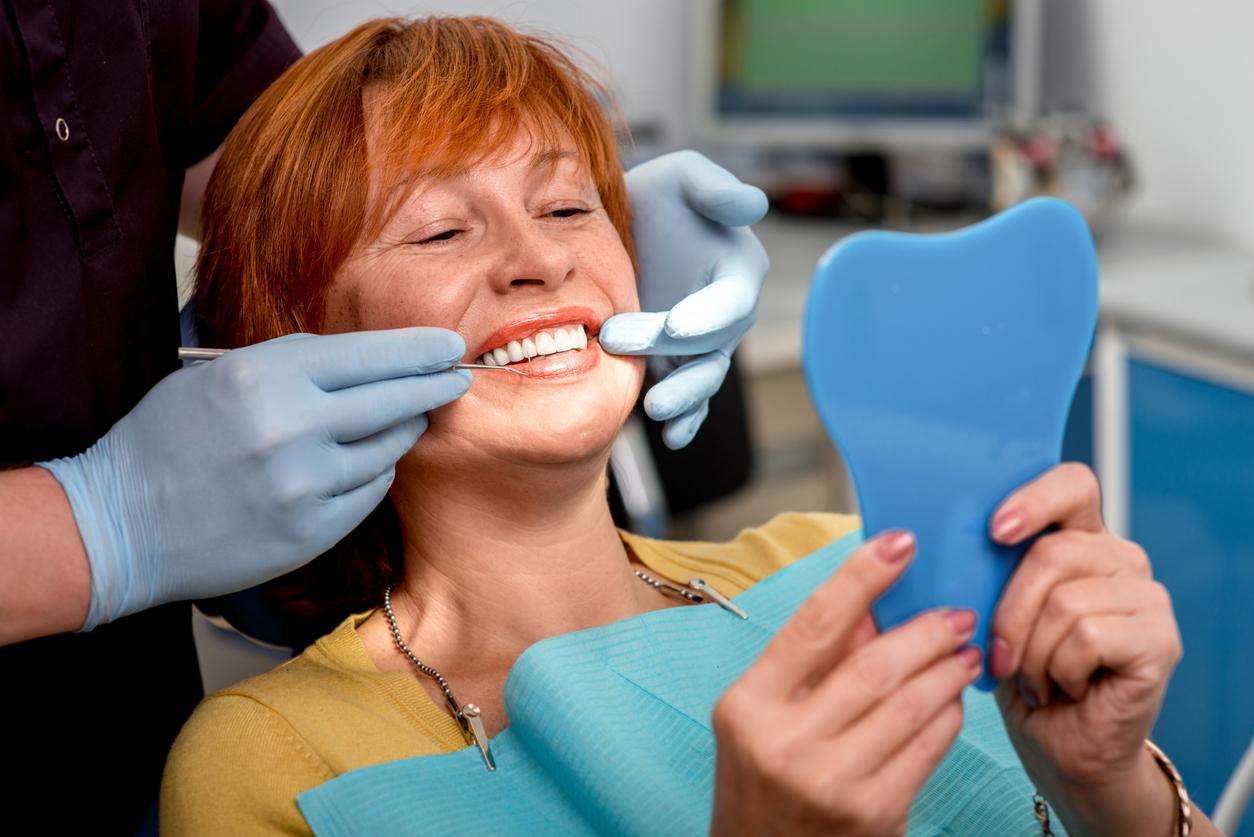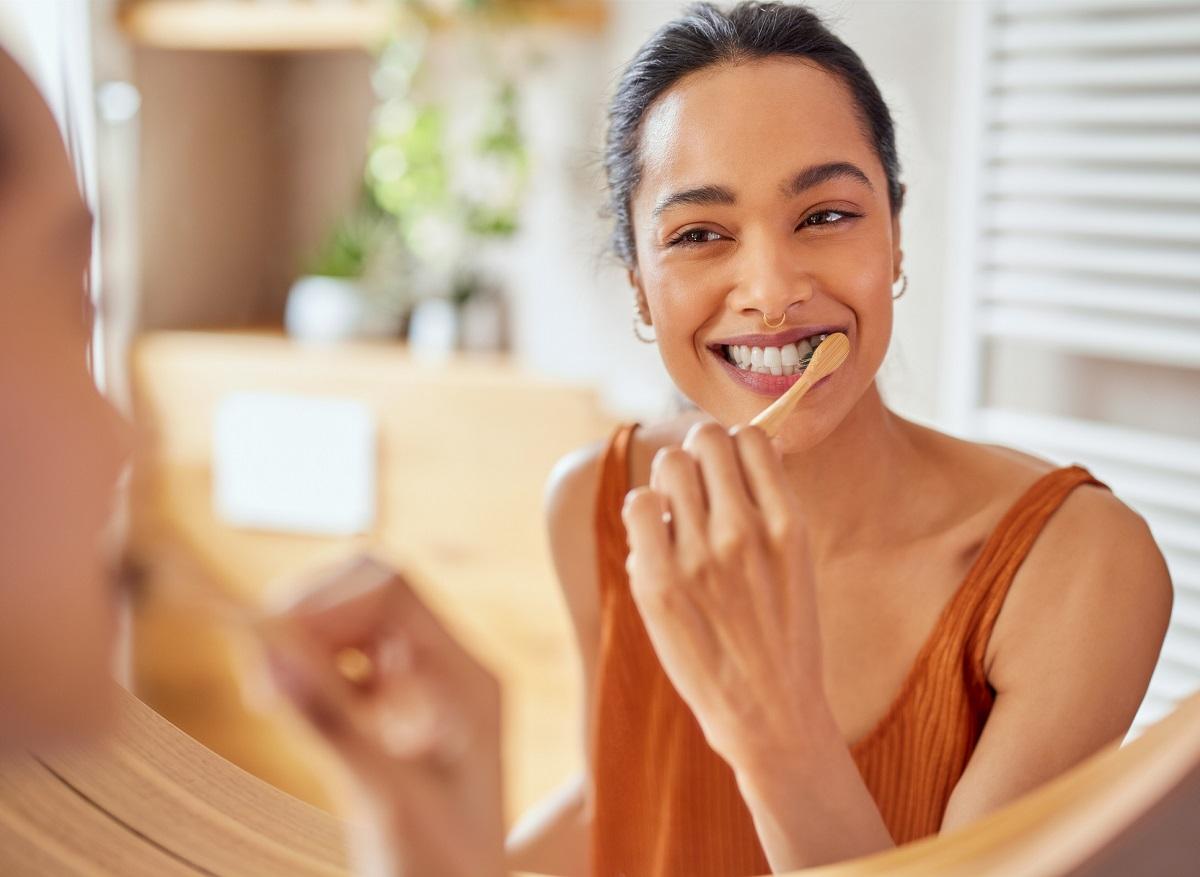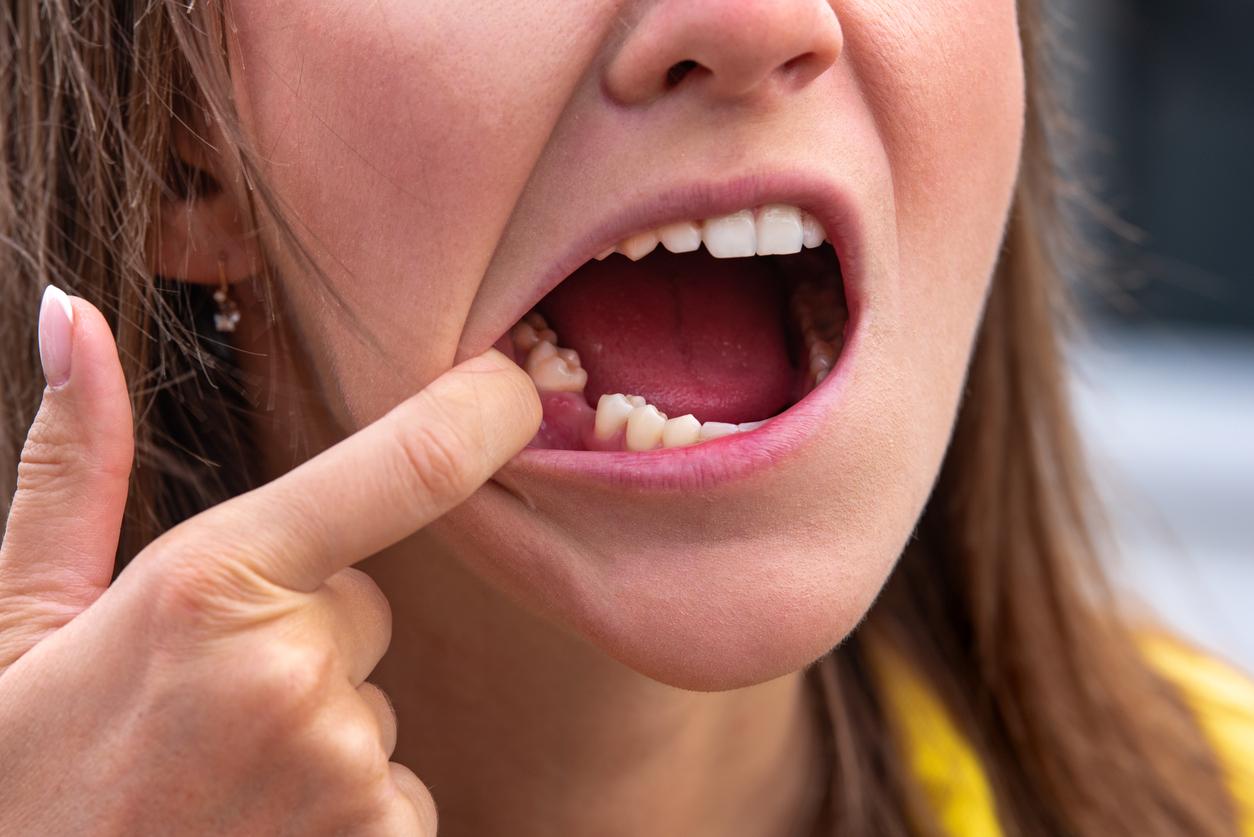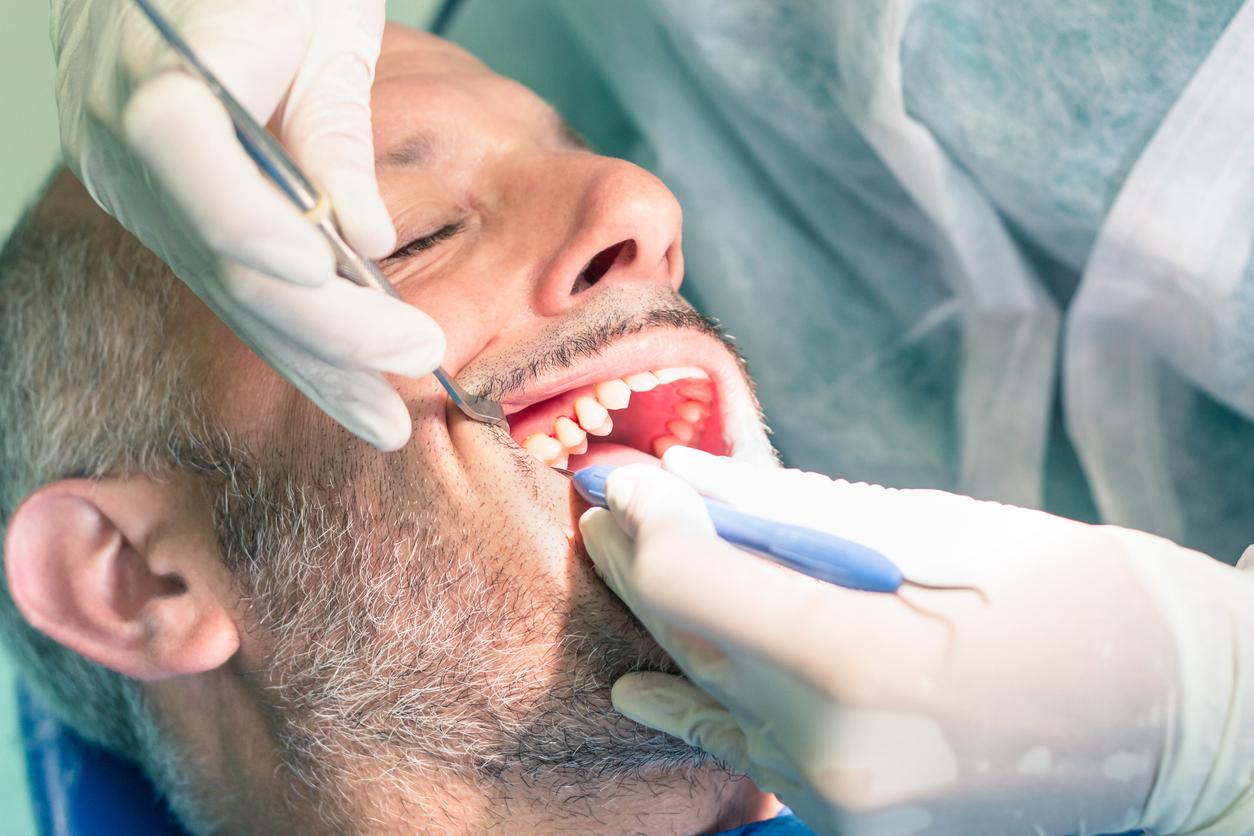For a long time, dentists have told us repeatedly that you need to brush your teeth at least three times a day to maintain healthy teeth. But as this recommendation was followed by only one in four French people, ten years ago, the French Union for Oral Health (UFSBD) therefore decided to review its recommendations and adapt them to our way of life. From now on, two daily brushings (morning and evening only) are recommended, because dental plaque takes 12 hours to form.
But don’t think you’re getting away with it: one less brushing is one thing. But dentists insist on the duration of brushing: it should last at least two minutes each time (and not between 43 and 50 seconds as is the case today for most of us). And also insist on the choice of toothpaste.
Toothpaste: always with fluoride
The introduction of fluoride as an anti-caries agent in toothpaste dates back to 1947. Mineral (sodium fluoride, sodium monofluorophosphate …) or organic (Olaflur), fluorine has gradually established itself in all toothpaste formulas. Its incorporation has made it possible to considerably reduce the prevalence of dental caries in the world, in particular thanks to the fluoride ions which are really active.
“Fluoride ions are limited in cosmetics at a dose of 0.15% (or 1500 ppm, unit confirmed by use in the oral-dental field). The risks of chronic intoxication are low. This happens in cases of ‘ingestion of a large quantity of toothpaste, in particular by children who are not old enough to spit it out or in particular psychiatric situations “underlines the UFSBD.
How to optimize the 2 daily brushings?
To replace midday tooth brushing, which is inconvenient when working, oral health professionals recommend rinsing your mouth with a glass of water after a meal and chewing sugar-free chewing gum. Chewing chewing gum will make it possible to produce saliva which is more loaded with bicarbonate and therefore more able to fight against acid attacks on foods and in particular sodas.
To optimize the two daily brushings, the UFSBD also recommends switching to an electric toothbrush because it is more effective than a manual toothbrush in removing dental plaque and reducing inflammation of the gums.
Read also :
- Dental hygiene: are you doing too much or not enough?
- 4 little dental concerns you should never overlook
- Fatigue: a good descaling to get back in shape?




















